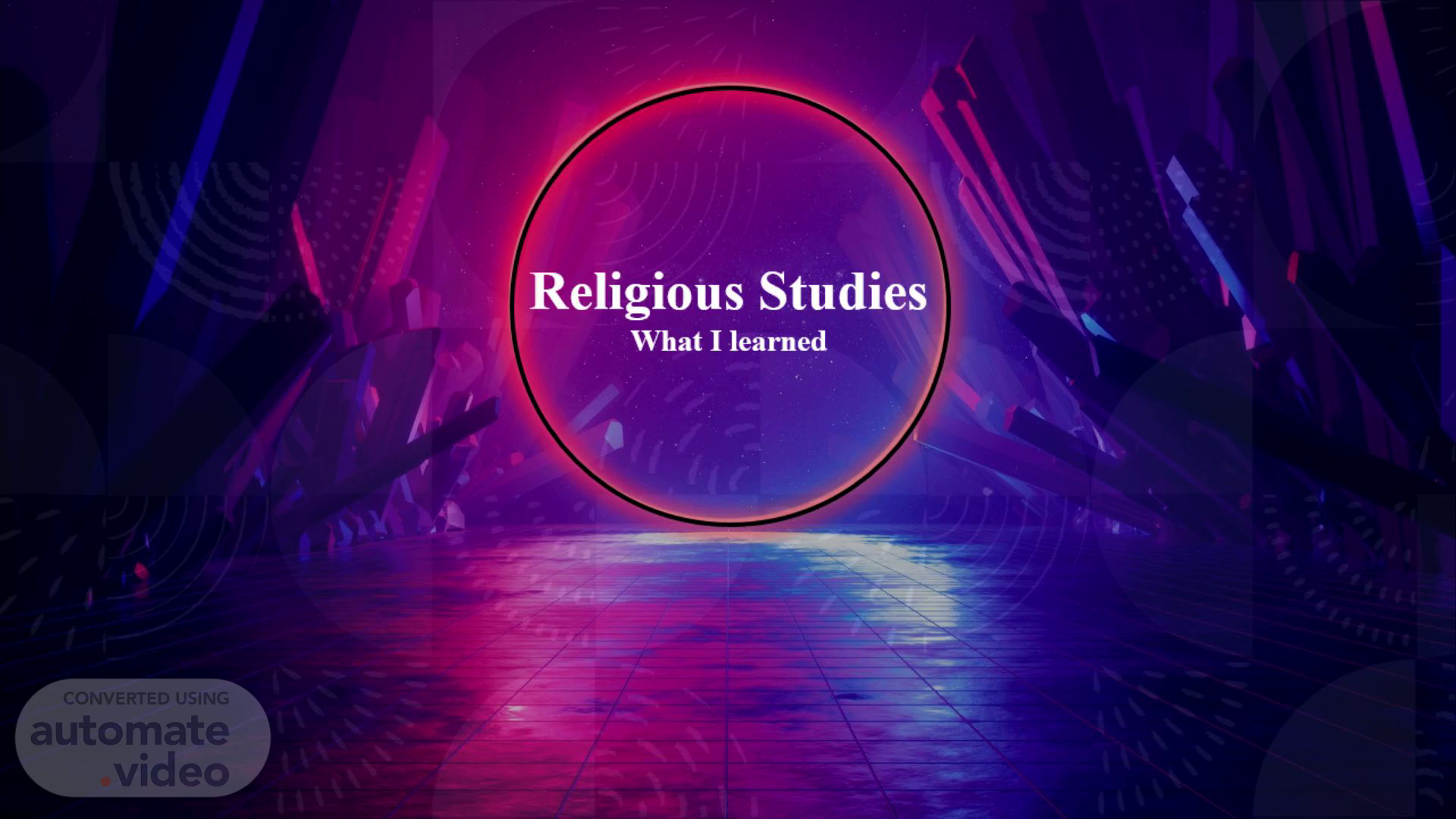
Religious Studies What I learned
Scene 1 (0s)
[Audio] Religious Studies What I learned. Neon 3D circle art.
Scene 2 (4s)
[Audio] Throughout this course I have come to understand several things taught in my own religion. I understand that the purpose of religious studies is not as to devotional studies, where one learns to gain knowledge and grow in belief. In the academic study of religion, it is more as to be informed of the various traditions, rituals, or practices, of other religions rather than our own..
Scene 3 (30s)
[Audio] Regardless, it helped me confirm my personal beliefs, and gained knowledge on other beliefs I had no idea existed. Studying religions and the history of how they came to be, involving rituals; traditions; practices, and beliefs was quite interesting. I was surprised to see how many religions have more in common than I thought. Most religions have a story to the creation of the earth except for Buddhism, Taoism and Jainism. All of them have beliefs about supreme beings or deities. All religions have something to worship or give honor to, either a deity or the creation itself. All religions teach about morals and have beliefs about life after death..
Scene 4 (1m 13s)
[Audio] In Taoism, it is believed that human beings should live in harmony with nature and the universe. It also teaches dualism, that everything has an opposing side to make sense, such as dark and light, evil and good, etc. Another important belief in Taoism is that the soul returns to the universe after death, there is no resurrection, heaven, or hell..
Scene 5 (1m 36s)
[Audio] One tradition I was unaware about was animism. It is interesting to know that in animism, everything that moves is controlled by invisible agents, which move them and have free will. This theory was first known by Edward Burnett Tylor, an anthropologist during the 1800-1900s. As a Christian, I believe we have free will, the capacity to act independently regardless of the state of others or what is happening around us, but there is something more to this, influence. As humans we tend to be influenced by others, and either God or Satan influence in the lives and decisions made. If a person claims to have accepted Christ as Lord and Savior, their acts will show it, if not, faith would be worthless.
Scene 6 (2m 23s)
[Audio] In Animism, if a person offends a spirit it could result in sickness, injury, failure, or interpersonal conflicts (Dean Halverson, 2004). In Christianity, actions have consequences, either good or bad (Galatians 6:7), but sins are all forgiven by God once He is accepted as Lord and Savior. Humans have a soul and a spirit that returns to God once deceased, and there are spiritual beings governing the invisible world influencing the natural world..
Scene 7 (2m 58s)
[Audio] Similarly to animism there is Anthropomorphism, the attribution of things having human form. This term derives from the Greek Anthropos "human" and Morphe "form". It was first used by philosopher Xenophanes, to refer to similarities between deities and human characteristics. In Christianity, spiritual beings can appear in human form, possess someone, as well as talking animals (Numbers 22:28)..
Scene 8 (3m 37s)
[Audio] There is so much to learn from religions, and it is so complex, that no one will ever be able to understand them all..